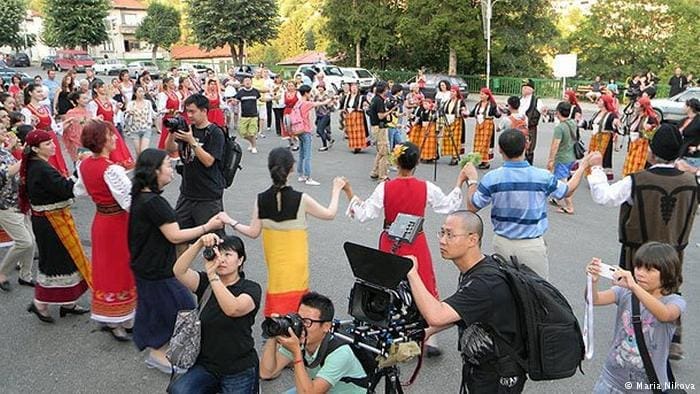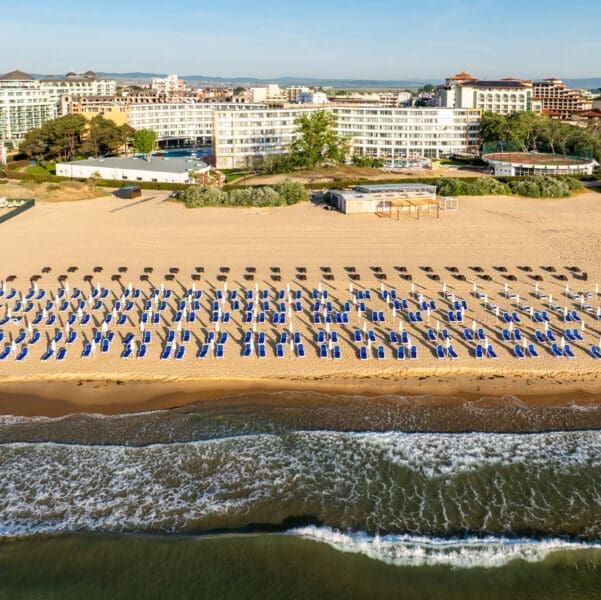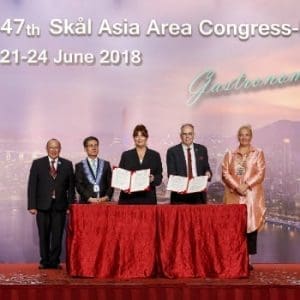Being at the crossroads between Europe, Asia and Africa, Bulgaria is well-renowned as a country that embraces multiple cultural heritage and is rich in history. There is plenty of evidence of its extensive ancient civilization and architectural landmarks that belong to the Thracian, Roman, Byzantine as well as the proto-Bulgarian eras. Several such landmarks are listed as world cultural heritage sites by UNESCO.

There are also thousands of historical monuments, medieval fortresses, tombs, monasteries, sanctuaries, museums, etc. which are scattered throughout the country that make Bulgaria a very attractive destination, especially for the middle-aged Chinese who are particularly interested in a country’s history and are captivated by the lifestyle and culture of people in the olden days.
For most of the younger jet-setting travellers, they are attracted to the relaxation from balneology, spa and wellness facilities, as well as the ecological and rural landscapes. For the majority of Chinese visitors, it’s more likely to be about Bulgaria’s unique lifestyle and the traditional cuisines which have generated a must-see as well as a must-eat.
A more current acquaintance amongst the Chinese with this fascinating country is the name ‘Momchilovtsi’ – which is famously known as the Yoghurt Village. About a decade ago, a Chinese firm had used its bacteria as a microbial culture to create various drinkable flavours that do not need to be refrigerated.
‘Mosili’an’ (莫斯利安), a localised name that was created by the Chinese manufacturer, is synonymous in China as a top selling brand which can be found in most supermarkets. Its country-wide sales exceeded 6.0 billion yuan (765 million euros) last year.
Its advertising billboards and product marketing displays are common sights at bus stops as well as regularly flashing across television screens. Over the years, Mosili’an has favourably portrayed its source, the historical as well as the ancestral heritage of the Momchilovtsi village as a unique place in Europe where people live long and peaceful lives.

Indeed, the key is to be ‘linguistically visible’
In order to attract more visitors to the country’s interior landscape, the Bulgarian Ministry of Tourism strategically designated eight tourist locales relating to cultural, historical, spa and wine-culinary. Each of these locales was provided with specially designed online maps and brochures in six foreign languages. The result was a whopping 90% increase in tourist numbers that had registered at these designated tourist websites!
To vie for a larger slice of overseas visitors, Bulgarian hoteliers, travel and hospitality business owners, whether engaging with the Chinese travel market or with communities from any other multi-ethnic markets for that matter, should always bear in mind on the age-old adage – ‘Can’t read, won’t buy’ (watch video).
Because it is a natural perception that everybody would certainly want to be able to read and understand product labels or travelling directions, in order to make an informed decision.
China: a mobile-first nation

China has already become a mobile-first nation, meaning that the Chinese communities are mostly using their smartphones to practically get all their chores done – from conducting online research, reading reviews and exchanging notes on social media platforms, to finalising their transaction for purchases.
It has been estimated that 75% use their mobile devices to plan their holiday getaways either by transacting directly with establishments or through OTAs. While 25% will rely on offline travel agents.
Thus, besides providing content in their preferred language, it is also imperative that hotels and hospitality websites that want to engage with the Chinese market are also optimised for mobile-friendly viewing.
According to reports, China’s level of smartphone users making travel bookings online is second-highest in the world, after Indonesia. This trend amongst the Chinese locals will undoubtedly increase rapidly. In general, purchases relating to ‘travel package’, ‘flight ticket’ and ‘accommodation’ are items that are being booked and confirmed before a trip, while ‘restaurant’, ‘event entry ticket’, ‘car rental’, etc. will usually be booked during the trip.
In other words, mobile-friendly websites and booking platforms with Chinese content will enjoy higher prominence with keyword searches amongst China’s millions of outbound tourists, be better at competing for their attention and much higher chances to stimulate that very important Call-To-Action.
Because with content being available in Chinese, would-be travellers will have instant access to view and read about a hotel’s facilities, or a hospitality establishment’s branding and marketing content. No longer are most people relying on printed books or brochures since they will be able to constantly access online information with just a few scrolls or swipes on their mobile devices.
For any hospitality or tourism-related businesses that want to connect and engage with the Chinese audience, It is imperative that their product or service information such as enticing messages on ‘special deals’, ‘privileges’, ‘in-bound tours’, ‘what to see’, ‘where to eat’, ‘what’s new’, etc. can be comfortably read and understood in the Chinese language.
While it is very much a one-time investment for websites and booking platforms to include content in the Chinese language, the benefits from higher probabilities with online searches and a wider reach on social media platforms should translate into attracting and winning more Chinese guests.
Needless to say, the financial returns are manyfold.



















